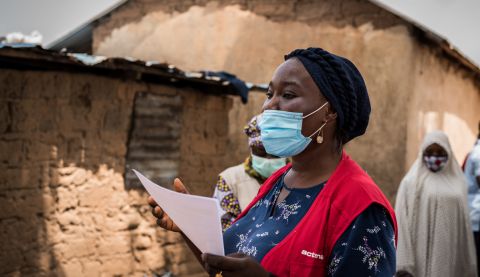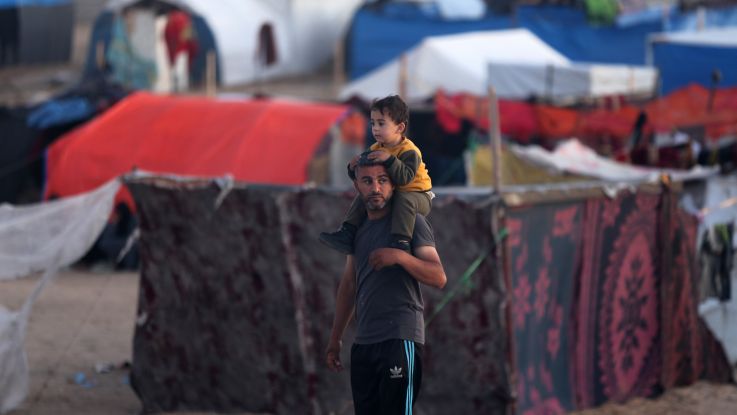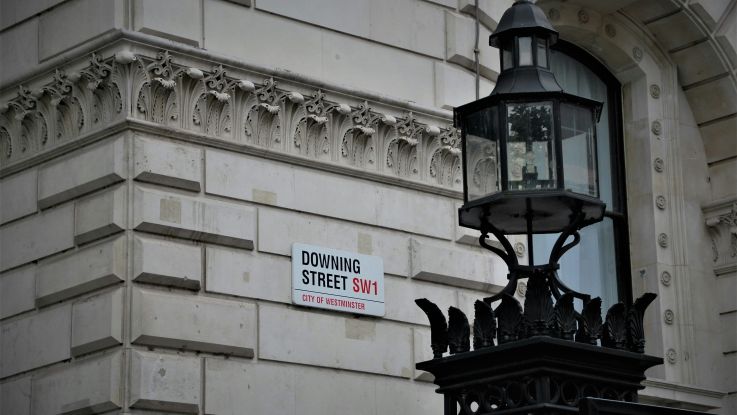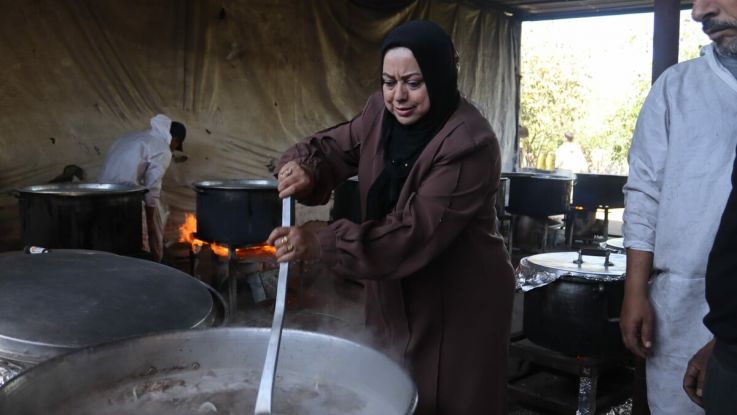The Grand Bargain: what happens next on the road to 2021?
1 July 2020
Four years on since the first Grand Bargain meeting, what has changed, and what needs to happen next on the road to 2021?

Women leaders distribute food relief as part of ActionAid's Covid-19 response in Nigeria. Photo: Etinosa Yvone/ActionAid
Last week marked the fourth anniversary of the Grand Bargain Annual meeting. It was the main follow-up process where agencies, donors and INGO signatories of the Grand Bargain met virtually to assess progress in the transformative workstreams, and discuss next steps.
But four years since the Grand Bargain agreement, what has changed? And what more needs to happen on the road to 2021?
What is the Grand Bargain?
At the World Humanitarian Summit in 20161 , world leaders and humanitarian agencies committed to scale up support for locally-led humanitarian action.
Through this, the Grand Bargain was established as a key commitment and major driver of the effort by humanitarian agencies to reform how they work, with an aim to reduce the humanitarian funding gap and improve the efficiency and delivery of aid.
What has changed within the last four years?
As we dashed online in the new reality of virtual meetings for the fourth annual meeting – has the sector been true to its promises?
Without doubt, the Grand Bargain is a unique platform, and has taken steps towards wider impacts in the humanitarian response promoting a more cohesive and collaborative approach in the international humanitarian aid sector.
The fourth annual meeting continues to show its value as a platform and space to discuss and take onwards further action, with this year’s agenda looking at the progress towards a transformative Grand Bargain in May 2021, examining workstreams such as localisation, use of cash, and transparency of funding.
The progress made in certain workstreams is creating systemic shifts in policy and practice and positive normative guidance in areas such as cash programming, where the volume of cash programming in humanitarian settings has doubled since 2016, reaching $5.6 billion by the end of 2019.2
In the workstream of localisation, funding to local actors slowly increases, with more signatories meeting the target of 25% of funding to local actors being as direct as possible.3 And improvement in capacity to better measure progress against funding flow targets can be witnessed.
The quality of joint intersectoral analysis has improved, with more consistent approaches to local participation within humanitarian country and multi-year planning, resulting in significantly more joined-up and strategic humanitarian and development programming in many countries.
However, even with these changes, the ongoing plans to reform the humanitarian system still fail to reach grassroots women’s rights organisations, or to be felt by women affected by crises.
What more needs to be done on the road to 2021?
The fast-paced nature of the Covid-19 response has further exposed gaps between Grand Bargain policy-level commitments and implementation on the ground; as well as the need to scale up investments in a comprehensive approach that covers crisis prevention, response, and resilience.
Local women’s organisations continue to face barriers that challenge their meaningful participation in humanitarian planning and other decision-making spaces."
This crisis has highlighted the critical role of local organisations, as restrictions on movement to and within countries imposed around the world indicate the clear value added of local and national organisations to take the lead in emergency response.
Nevertheless, the recognition of women's agency and leadership remains largely inadequate.
While women and local women’s organisations play a critical role in helping affected communities cope and adapt to crises, local women’s organisations continue to face barriers that challenge their meaningful participation in humanitarian planning and other decision-making spaces.
Many Grand Bargain Meetings, including the annual review meeting last week, remain closed to local and women-led organisation who could offer real experiences and new perspectives.
We must enable women to lead on recovery plans
Particularly in the context of Covid-19, we must become better at giving space and enabling an environment to promote local women’s participation in global meetings – especially when the conversations discussed in these meetings affect them directly.
Local women should have the right to speak out on the decisions that affect their lives."
If we want to see meaningful change in the humanitarian system we must enable women to participate in decisions and lead on the recovery plans.
Local women should have the right to speak out on the decisions that affect their lives – and should be granted full and equal participation to do so.
Our experience shows that women are uniquely positioned to act as first responders - bringing invaluable contextual knowledge, skills, networks, and resources during disasters.
This is evident in the Covid-19 response. Local women organisations have adapted, and invested in strategies to continue to provide life-saving humanitarian response under the new Covid-19 circumstances – and so too we must consider how to best engage with them in the realities of online communications and new ways of working.
Against this rapidly changing global context, Grand Bargain signatories must pave the way for sustainable recovery efforts that are grounded in gender transformative programming, in a way that better recognises, and addresses the needs of women and girls.
Gender and power should be at the heart of the Grand Bargain
ActionAid supports the continuation of the Grand Bargain post-2021.
However, the agreement needs to have a renewed form and approach that places gender and power at the centre of the analysis of political obstacles that continue to stall progress in some areas.
The Grand Bargain moving forward needs to be accountable at global and local level to affected populations in crisis, women, young people, and their organisations, with a strong commitment to support women’s and girls’ leadership from the national level.
And it must work with networks such as the Feminist Humanitarian Network4 that brings together a collective of women leaders committed to a transformed humanitarian system that promotes a feminist humanitarian agenda.
It must be locally owned, and transparent in terms of how increased voice and funding of local organisations, as well as other agreed transformations, are progressing.
Donors need to adapt to a more flexible and harmonised approach to requirements on gender and women’s participation.
The Grand Bargain system must work for those most affected
As we move forward, adaptation is key. Gender considerations and the empowerment of women and girls needs to be mainstreamed within all commitments in the Grand Bargain and should be a primary focus for post-2021.
So rarely does the current humanitarian system ask – how does this system work for those most affected?
It is time for that to change.
We must open the space and hear from those directly affected. We must be able to learn, and provide the opportunities for local women rights organisations to be heard, in order for transformative action to take place.
The power of women-led response: our latest brief
Shifting power to women makes a difference, from the very top to the bottom.
Our latest brief Creating lasting impact: The power of women-led localised response to Covid-19 makes a series of practical recommendations for Covid-19 response efforts to be driven by local women, as decision makers and partners, will:
- Support rapid and contextually relevant efforts to curb the spread and impact of Covid-19, reaching families and communities at scale.
- Ensure the gendered impact of Covid-19 is addressed and the rights of women and girls are protected and prioritised.
- Pave the way for sustainable recovery efforts, grounded in fairer and more gender-just communities and societies.



